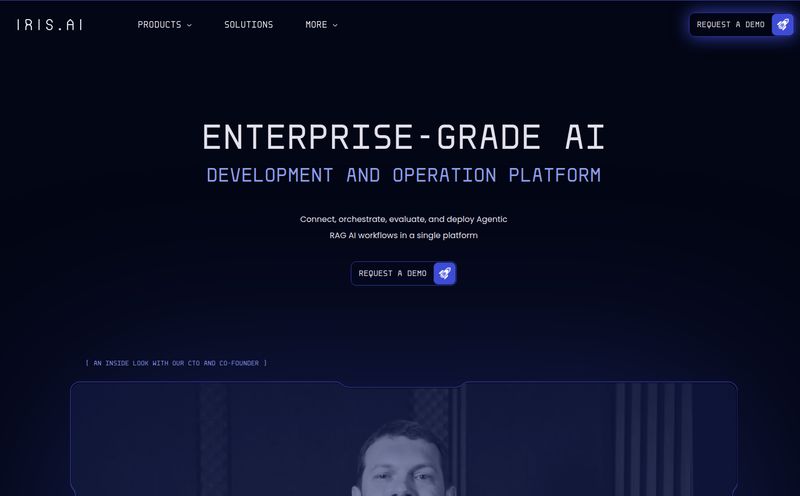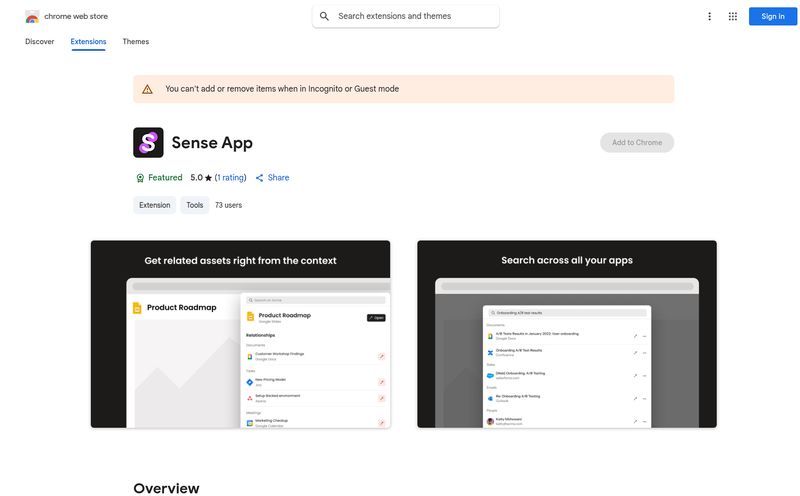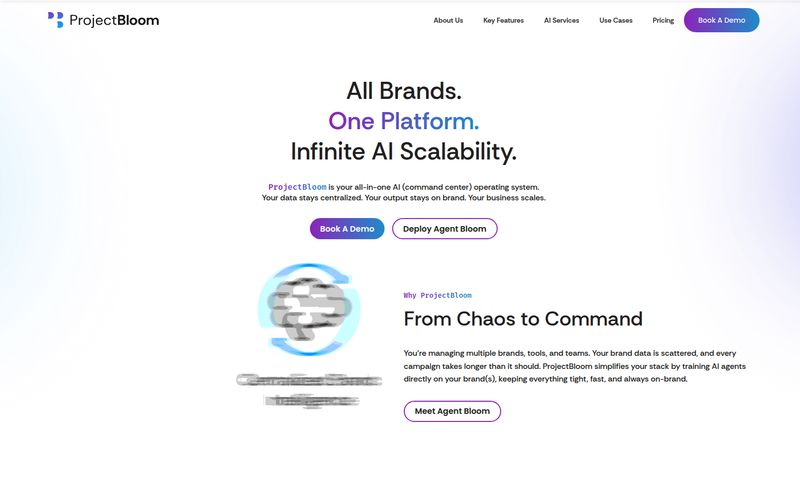I’ve spent more time than I’d like to admit trying to stitch together different AI services. You know the drill. You pull data with one API, send it to a language model through another, try to parse the output, and then push it to a third service for analysis. It’s like being a digital plumber, constantly wrestling with leaky pipes and mismatched fittings. It works, sure, but it feels clunky. Fragmented.
So when a platform comes along with a tagline like “Not workflows, lifelike agents,” my ears perk up. That’s the bold promise of xoul.ai, a new player on the block that’s aiming to be a “nexus for agents.”
It’s a big promise. A huge one, actually. But after poking around and seeing what they're building, I have to say, I'm intrigued. This might just be the shift we've been waiting for in terms of making AI genuinely accessible and, dare I say, collaborative.
So, What Exactly is xoul.ai Trying to Do?
At its heart, xoul.ai wants to solve the fragmentation problem. The website lays out a simple but powerful “Before” and “After” scenario. Before? Fragmented workflows that are hard to use and even harder to scale. After? Composable AI agents that are simple to use and easy to scale.
Think of it this way. The “Before” is like having a drawer full of specialized kitchen gadgets: a garlic press, an apple corer, an egg slicer. Each one does its job well, but you have to manually take each one out, use it, clean it, and put it away to make a full meal. It’s a workflow.
xoul.ai wants to give you a team of chefs. You don’t tell the chefs how to chop the onions; you just tell them you want a French Onion Soup. They collaborate, each using their skills, to deliver the final product. That’s the vision of “lifelike agents.” These aren't just single-task tools; they're designed to be autonomous, intelligent entities that can work together. A pretty cool concept, right?
Building AI Without Writing a Single Line of Code
Here’s the part that gets people like me—SEOs, marketers, founders, and creatives—really excited. You can supposedly create these powerful agents without coding. This is the holy grail for so many of us who have incredible ideas for automation and AI implementation but dont have a PhD in computer science or a team of developers on speed dial.
This democratization of technology is a trend we've seen with website builders like Webflow and automation tools like Zapier. xoul.ai is aiming to bring that same revolution to the AI space. It wants to give you the power to build, but without the steep learning curve of Python and a dozen different libraries.
The Power of Composable Agents
The secret sauce here seems to be the idea of “composable” agents. This is a term you'll probably be hearing a lot more. It means the AI agents are like LEGO bricks. Each agent can be a self-contained unit with a specific skill, and you can snap them together to create a much more complex and powerful system.
Imagine this for a marketing campaign:
- Agent 1 (The Scout): Constantly scans Twitter, Reddit, and news sites for mentions of your brand or keywords.
- Agent 2 (The Analyst): Takes the Scout's findings and performs sentiment analysis. Is the chatter positive, negative, or neutral?
- Agent 3 (The Summarizer): Condenses the key themes and most urgent issues from the Analyst's report into a daily briefing.
- Agent 4 (The First Responder): Drafts empathetic, on-brand replies to common negative comments, flagging them for a human to review and send.
Individually, these tasks are possible with existing tools. But with a platform like xoul.ai, the goal is to have these agents operating as a single, cohesive unit within one ecosystem. That’s a game-changer.

Visit xoul.ai
And for those of you who do care about the tech under the hood, they're not building this on a whim. The website mentions its built on giants like LangChain and LlamaIndex. These are foundational frameworks in the AI development world, so it's good to know the platform is standing on solid ground.
Is This the 'App Store' for AI Agents?
Another fascinating layer to xoul.ai is the emphasis on sharing and discovery. It isn’t just a tool for you to build things in isolation. It’s being positioned as a platform, a community. A place where you can not only create your own agents but also discover and use agents built by others.
This smells a lot like GitHub for code or the App Store for mobile apps, and I mean that in the best way possible. An open marketplace of ideas and tools could accelerate innovation incredibly fast. Need an agent that can analyze SEO competitor data? Maybe someone’s already built a great one. You can just plug it into your own system. The potential for collaboration here is immense.
Let's Get Real: The Good and The Not-So-Good
Okay, let's put the hype aside for a second. As with any platform, there are always trade-offs. I’ve been around this block enough times to know there's no such thing as a perfect tool.
The Big Advantages
The most obvious pro is the democratization of AI. Giving non-coders the ability to build sophisticated agents is massive. It opens the door for so much creativity from people who understand a problem domain (like marketing or customer service) but not the technical implementation. The ability to create human-like, composable agents could lead to some truly innovative solutions for businesses of all sizes.
The Potential Catches
On the flip side, whenever you use a platform like this, you’re entering its ecosystem. That means a certain level of reliance. You're dependent on xoul.ai's infrastructure, its stability, and its future development path. Some might call it a “walled garden.” If the platform goes down, your agents go down with it. Also, for hardcore developers, a no-code interface will almost certainly have limitations compared to coding an agent from scratch, where you have absolute control over every single parameter. It's the classic trade-off: ease of use versus ultimate flexibility.
What's the Price Tag on This AI Revolution?
And the big question ofcourse, is cost. As of right now, xoul.ai hasn’t released any public pricing information. This isn't unusual for a platform in its early stages. They’re likely focused on building the core product and attracting early adopters first.
If I were to guess, we’ll probably see a tiered subscription model. Perhaps a free tier for basic agent creation and experimentation, with paid plans based on things like the number of agents you can run, the complexity of the tasks, and the amount of data processed. But that's pure speculation. For now, we'll have to keep an eye on their site for official announcements.
So, Who is xoul.ai Actually For?
While developers might find it an interesting tool for rapid prototyping, I don't think they're the primary audience. In my opinion, xoul.ai is for:
- Marketers and SEOs who want to automate data gathering, competitor analysis, and content creation workflows.
- Small Business Owners looking to build custom AI-powered customer service bots or internal process automation without a huge budget.
- Researchers and Academics who need to create agents for data collection and analysis from various online sources.
- Creators and Entrepreneurs with a unique idea for an AI-driven service but without the coding chops to build it from the ground up.
It's for the problem-solvers, the thinkers, the people who see a need and want to build a solution now.
A Glimpse of What's Coming
So, is xoul.ai the future? It’s too early to say for sure. But it is, without a doubt, a fascinating glimpse of the future. The move away from rigid, step-by-step workflows toward flexible, collaborative, and lifelike AI agents feels like the next logical evolution. It’s ambitious, and I'm genuinely excited to see how it develops and what kind of amazing things people will build with it.
The age of the AI plumber might be coming to an end. The age of the AI architect, on the other hand, might just be beginning.
Frequently Asked Questions about xoul.ai
- What is xoul.ai in simple terms?
- xoul.ai is a platform that lets you create and use AI 'agents' without needing to know how to code. The idea is to build a network of these agents that can work together on complex tasks, making powerful AI accessible to everyone.
- Do I need to be a programmer to use xoul.ai?
- No. The entire platform is designed around a no-code philosophy. Its main goal is to empower people without a technical background to build and deploy their own AI agents.
- What are 'composable AI agents'?
- Think of them as modular AI building blocks. Each agent has a specific skill. 'Composable' means you can easily connect these different agents to create a more sophisticated system, much like snapping LEGO bricks together to build something complex.
- Is xoul.ai free to use?
- Currently, xoul.ai has not released official pricing details. It's common for platforms in this stage to be in a beta or early access phase. You should check their official website for the most up-to-date information on pricing or potential free tiers.
- What technology is xoul.ai built on?
- The platform's website states that its intelligence is built on established AI frameworks like LangChain and LlamaIndex, which are well-regarded in the development community for building applications with large language models.
- How is this different from just using something like ChatGPT?
- While ChatGPT is a powerful conversational AI, it's primarily a single tool. xoul.ai is a platform for building and connecting multiple agents that can perform a variety of tasks autonomously and collaboratively. You could, for example, build a system where one agent gathers data and another, powered by a model like GPT, analyzes and summarizes it.



